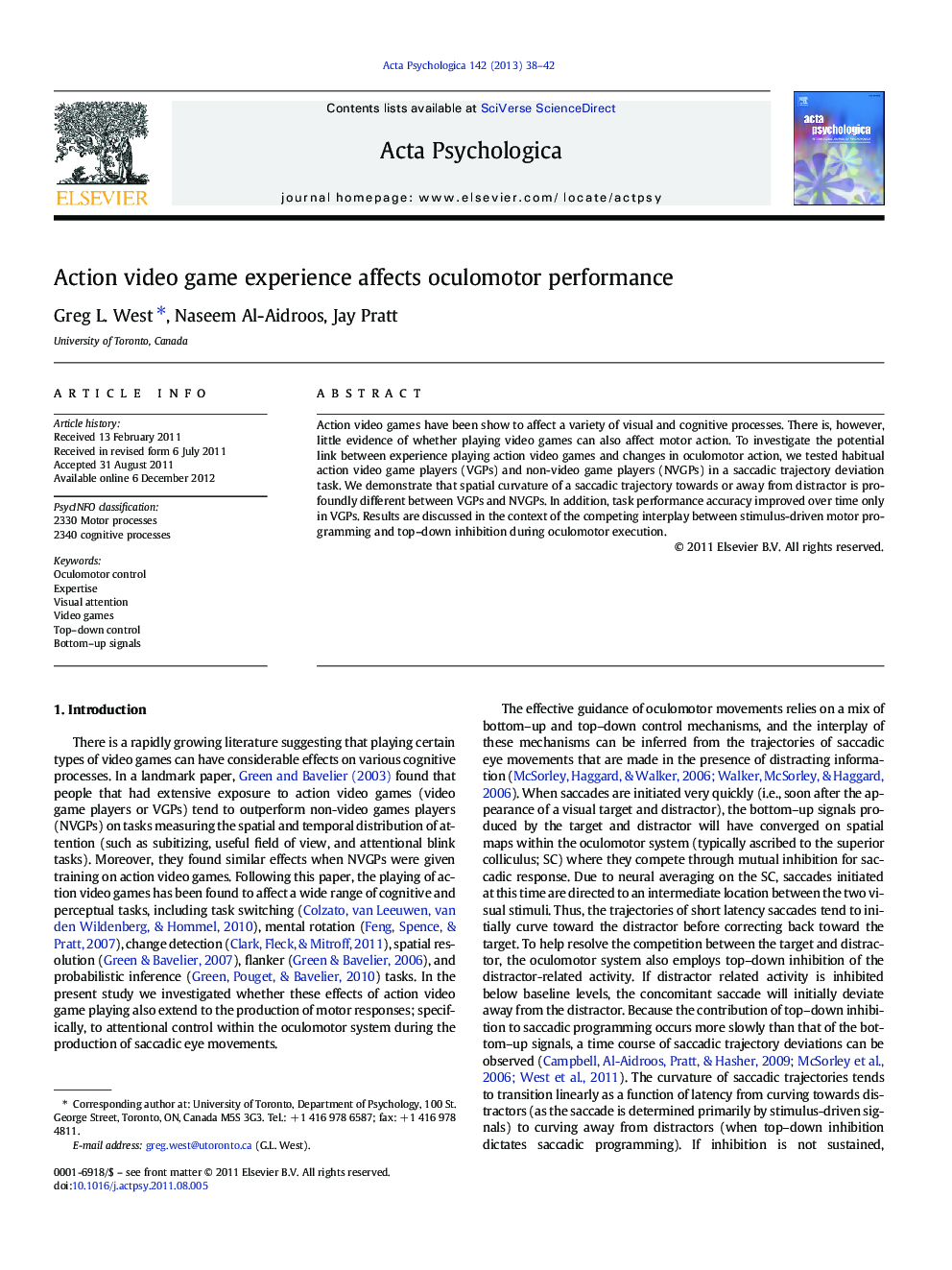| Article ID | Journal | Published Year | Pages | File Type |
|---|---|---|---|---|
| 919936 | Acta Psychologica | 2013 | 5 Pages |
Action video games have been show to affect a variety of visual and cognitive processes. There is, however, little evidence of whether playing video games can also affect motor action. To investigate the potential link between experience playing action video games and changes in oculomotor action, we tested habitual action video game players (VGPs) and non-video game players (NVGPs) in a saccadic trajectory deviation task. We demonstrate that spatial curvature of a saccadic trajectory towards or away from distractor is profoundly different between VGPs and NVGPs. In addition, task performance accuracy improved over time only in VGPs. Results are discussed in the context of the competing interplay between stimulus-driven motor programming and top–down inhibition during oculomotor execution.
► We compared action video game players (VGPs) to non-action video game players (NVGPs). ► We examined differences in oculomotor control between the two groups. ► Differences in saccadic trajectory deviations while making a saccade to a target were observed. ► Experience with video games has the ability to modulate motor control processes.
